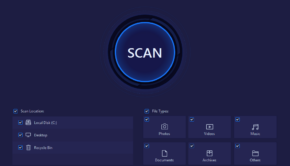Is Backup and disaster recovery still relevant for business in a cloud era?
While everyone may suffer from technology disasters, clever organisations can keep their company operational by using one all-encompassing disaster recovery strategy that combines duplication of highly important resources with backup of less important ones. Those who prepare for the worst save a lot of time and money. A suggested addition to corporate data backup strategies is one cloud-based solution called Disaster Recovery as a solution, or DRaaS.
Although no company wants to see a significant data loss, the best course of action is to hope for the best and prepare for the worst, as unanticipated events happen. Power or hardware problems, virus assaults, natural catastrophes, and the most prevalent source of downtime—plain human error—can all affect even the most careful and ready company. For this reason, data backups and replication are vital as backups in a disaster recovery plan.
One of the most underappreciated elements companies usually disregard is disaster management. Many need a solid plan to return to normal in the least amount of time. Natural catastrophes may strike anywhere, from a primary power outage to a devastating storm. The most often occurring modern catastrophes include phishing, hacking, ransomware, and other malevolent actions aimed at data breaches. According to a 2023 Tech Target1 estimate, data breaches in the banking sector cost $5.90 million, while in the healthcare sector, they cost $10.93 million.
Given the high level of technological use, businesses will only succeed if they are prepared. Before it is required, a disaster recovery strategy is vital. Any company revolves around data, so any loss—operational, transactional, or customer data—will have effects. Customer trust and brand reputation are what gets worn down.
Dealing with calamities most importantly depends on data backup. Many companies have lately migrated their data to the cloud as it provides greater security and backup mechanisms. A cloud change is necessary as using physical storage solutions has great upfront expenses and extensive upkeep. Many companies also use a hybrid strategy combining physical on-site storage with the cloud.
The following factors help to prepare one for calamities and guarantee a speedier Business-as-Usual (BAU) timeline
Establish a precise impact analysis to ascertain the effects of a data breach at many phases of business. Such a study helps one prioritise data backups more efficiently.
Recover Point and Time Objectives should have deadlines. The disaster recovery strategy depends on this as it sets the highest allowed downtime.
One significant benefit you should use is data replication across many regions.
Backing up data depends much on the cloud service provider one chooses. Make sure their backup system follows pre-defined SLAs and has appropriate periodical validation.
Backup-as-a- Service
Reliability and defence against the consequences of any incident or catastrophe endangering the data and access capability of your business are provided by backup-as-a-service, or BaaS. A BaaS solution and a disaster recovery strategy can help your company avoid losing valuable time and money from downtime.
Let’s investigate what BaaS programs may provide your company and their advantages.
Practicing convenience
When you need them, backups are right here. When calamity strikes, your data isn’t buried in the trenches. Finding the necessary data is easy instead. With data storage, BaaS increases production to whole new levels. Data entered into your system or acquired automatically is stored. The BaaS solution will store, label, and track your data for you, so there is no need for proactive saving, labelling, or tracking of your information.
Security
Data security must first be considered during a catastrophe when downtime is significant. Unmatched safety is provided with baaS solutions. Modern, state-of- the-art facilities with physical and virtual security mechanisms in place house data. Regarding cybersecurity and virtual dangers, downtime may be quite a burden for businesses. BaaS guarantees, nonetheless, that your data will stay safe from all sources and any breaches, even if your system is offline.
Economical feasibility
BaaS solutions provide a reasonably priced complete answer. Comparing disaster recovery expenses to a BaaS solution will show a significant difference. Unlike utilising physical infrastructure, you gain from not having to pay substantial upfront expenses.
Using less management and troubleshooting of various backup systems and a BaaS solution may lower these expenses. It is not your IT department but the vendor of the BaaS system you decide upon that engages in such efforts.
Consistency
Regarding obtaining and storing your data, BaaS solutions are very dependable. A highly redundant setup guarantees your data is always where it should be. Apart from the solution itself, the seller and the experts safeguarding your data will be dependable in getting the required information.
Restlessness
Being a company owner means you have to keep current on millions of chores. Regarding technology, knowing everything might be daunting, much less learning a new data storage and backup solution. Here there is some excellent news. Your IT team only requires a little training with BaaS solutions or user configuration. The answer is applied to your present system and instantly shields your data.
Scalability
Many vendors and solutions claim too many features, most of which your company hardly wants to utilise or demand. BaaS provides scalability, hence, your strategy may expand as well. You will pay for the storage you utilise only. Using your BaaS lets you buy additional services, such as managed security.
Conclusion
For companies wishing to expand quickly with little overhead, this is ideal. Data sometimes surpasses expectations, which is why Backup and disaster recovery services is an excellent choice. BaaS provides the freedom to operate your company without worrying about terrible downtime during a crisis. BaaS systems follow HIPAA, PCI DSS, GLBA, SOX, and GMPA, among other rules.
Cover Image: Freepik
















